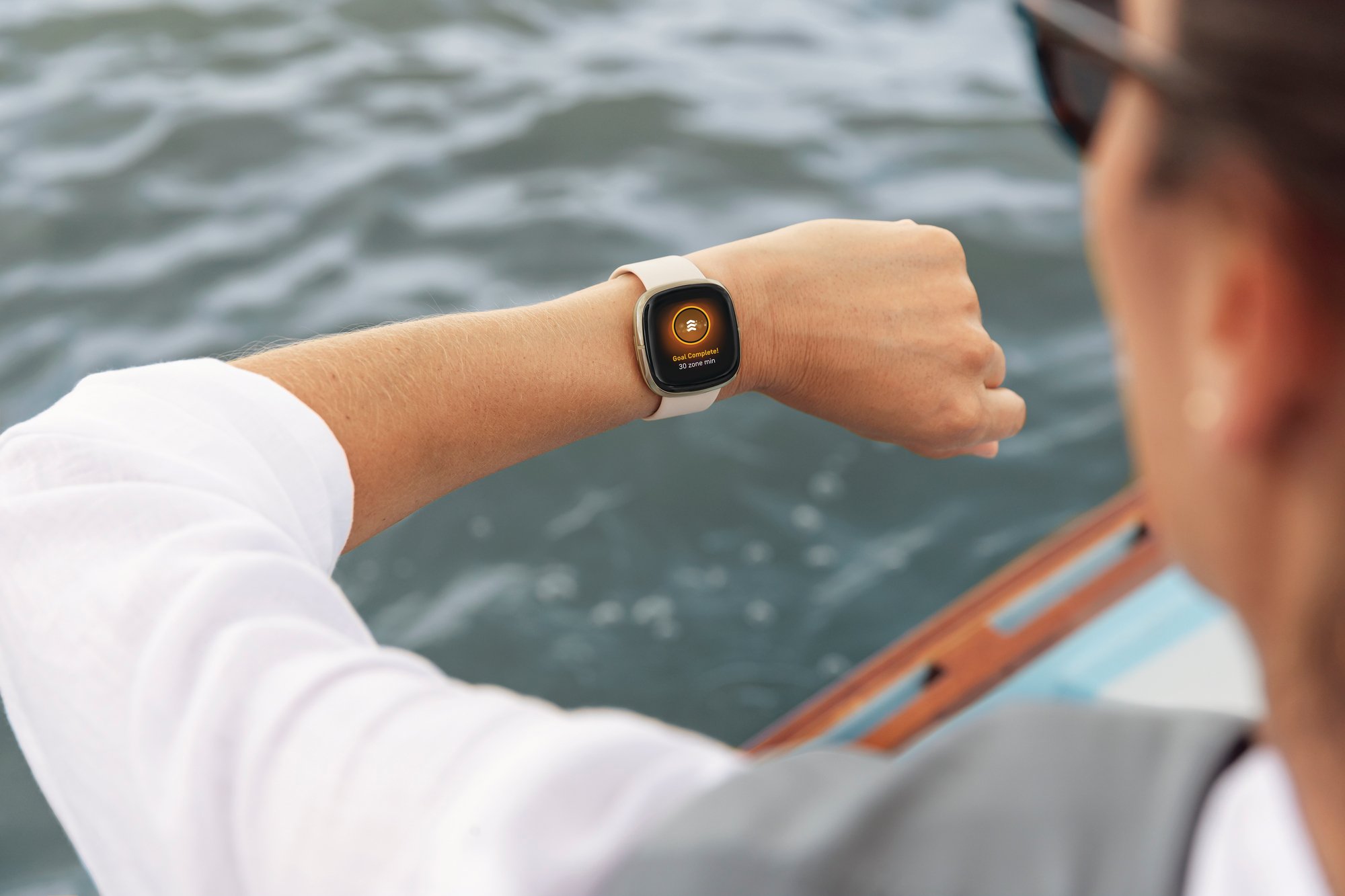Fitness trackers are what made Fitbit (FIT +0.00%) the company it is today, and the band maker says it has no intention of abandoning them even as smartwatches now account for the majority of its revenue. Yet as Fitbit seeks to establish its credibility as a healthcare partner by encouraging people to use wearables to improve decision-making about their well-being, a new study calls into question just how reliable fitness trackers are at even the most basic task of counting steps.
The University of British Columbia recently studied the accuracy of Fitbit trackers and found the results they recorded had at best a 50-50 chance of getting step count right. While the trackers were most likely to be correct when people were doing normal walking routines or even jogging, so long as they held their wrists just right, the devices overestimated activity in high-intensity workouts and underestimated activity during fast-paced walking.
The study concluded that researchers should not rely on the devices, and certainly not in making healthcare decisions, because the number of situations where trackers provided the correct data was very limited. The researchers noted that the devices would very likely get better as the hardware improves and more data from users is gathered. They said that the findings "do not negate the value of using Fitbit activity trackers in the manner for which the devices were intended, which is for self-monitoring of physical activity patterns and motivating individuals to achieve their physical activity goals."

Image source: Getty Images.
Moving the goal posts
Fitness trackers like Fitbit's were originally designed to help motivate people to get moving, and though they may be successful at that, their mission is expanding. For example, last year, Fitbit partnered with UnitedHeath Group (UNH +2.18%) to incorporate its Charge 2 tracker into the insurer's employer-sponsored wearable wellness program to offer financial incentives to participants.
Employees could earn as much as $1,500 a year in tax-deductible credits that would be deposited into a health savings or reimbursement account by signing up and receiving a free tracker to use and monitor progress (the credits have apparently since been reduced to $1,000 a year).
Doctors are also looking at data to diagnose potential health issues. One study used commercially available smartwatches to identify atrial fibrillation, or an irregular heartbeat, which affects 34 million people worldwide and is a leading cause of stroke.
Fitbit, of course, is also trying to transform itself from being simply a manufacturer of consumer fitness devices to one that is fully integrated into the healthcare system.
Earlier this year, the company purchased Twine Health, a start-up that helps people manage chronic diseases such as diabetes and hypertension by connecting them to coaches and doctors who develop plans to create healthier lifestyles. Fitbit believes that hospitals and clinics running the Twine software platform will help enmesh its technology with other industry vendors.
Image source: Fitbit.
Fitbit has big plans
Fitbit CEO James Park also told Fortune the reason Fitbit entered the smartwatch business was because the trackers can only provide a limited amount of healthcare data. To help individuals with medical conditions such as diabetes and hypertension, "[you] need much more functionality than is typically available in a traditional tracker. We needed a bigger screen, more advanced sensors, different form factors. That's really why we entered the smart watch category."
Park said Fitbit would still focus on consumers, but it now had a much grander vision of what it could do, and it planned to "create overall solutions for helping people manage different health conditions."
However, if people are unable to rely on collected data to accurately reflect their activity, they're going to be resistant to the idea of making choices based on that information, particularly when it's wrong half the time.
In a statement in response to this article, Fitbit said the company is committed to "making the best clip and wrist-based activity trackers on the market and [is] confident in the performance of all of our trackers ..." The trackers aren't scientific or medical devices, it noted. "Overall, the success of Fitbit products comes from enabling people to see their overall health and fitness trends over time -- it’s these trends that matter most in achieving their goals.”
Covering all the angles
Undoubtedly, as time progresses and the technology improves, accuracy will likely get better. The University of British Columbia study was based on devices that were a few years old, and Fitbit has since come out with new trackers, like the Alta, as well as the Charge 3, which is being promoted as a means of tracking sleep disturbance issues that could indicate health problems like sleep apnea. The Charge family of products has sold some 35 million devices, making it Fitbit's most successful line of trackers.
The Versa smartwatch, though, catapulted Fitbit back into the running in the smartwatch market. In its most recent quarterly earnings report, Fitbit said the Versa outsold competing units from Samsung, Garmin, and Fossil combined: Smartwatches now account for 55% of the company's top line.
That kind of growth has allowed Fitbit to forecast that it will be almost free-cash-flow-positive this year. But if consumers who it's counting on to use its devices to make healthcare decisions start doubting the veracity of results, it could undermine those efforts and set back the advances the company has already made.






